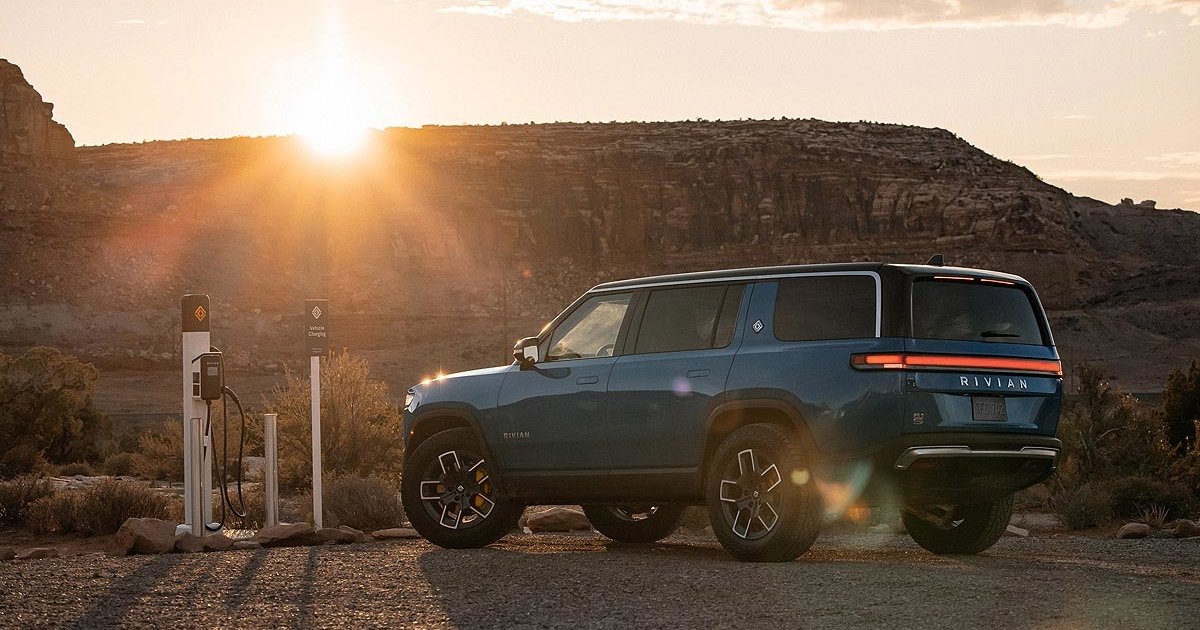
WASHINGTON — Ford Motor Co. and Rivian are urging the federal government to expedite the permitting process for U.S. critical mineral mining projects that support domestic battery production for electric vehicles.
In comments submitted Tuesday to the U.S. Department of the Interior, Ford said the permitting process for mining projects that support high-capacity battery manufacturing “should be no longer than three years.”
“Today’s lengthy, costly and inefficient permitting process makes it difficult for American businesses to invest in the extraction and processing of critical minerals in the United States,” Chris Smith, Ford’s chief government affairs officer, said in a letter to the department.
Current U.S. permitting requirements for critical mineral production can take up to 10 years, he said. “In contrast, Canada and Australia have adopted mineral permitting policies that enable producers to complete the process in two to three years, while maintaining stringent environmental standards.”
Ford is calling for expanding the use of the Defense Production Act to authorize expedited proposals that support battery projects on federal lands as well as improving transparency in the permitting process.
The automaker also is urging the government to fund research and geomapping of critical mineral deposits throughout the U.S., including directing DPA funds for Energy Department research into how the domestic resource base could meet the needs of the auto industry as it seeks to produce more EVs and batteries here.
Ford also wants the government to make sure U.S.-based mining companies and downstream users are committed to social and environmental principles.
“If we enable American critical mineral production to perform at full potential, our nation can enjoy enormous economic growth, new job opportunities and solidified supply chain security while simultaneously fueling ambitious emission reduction goals and providing customers with innovative, high-performing vehicles,” Smith said.
EV newcomer Rivian Automotive Inc., in its comments to the department, also called for modernizing mining laws and expediting the permitting timeline as it focuses on ramping up production at its plant in Normal, Ill., and starting construction on a second plant in Georgia.
“We are encouraged by the discussion to help expand and accelerate domestic mineral development while also protecting our bedrock environmental laws and special places like National Parks and Wilderness,” Rivian said.
“Much of the nickel, lithium, copper and cobalt reserves in the U.S. are located on or near tribal land,” the EV startup continued, “so tribal consultation in the form of free, prior and informed consent must also be central to any update to our domestic mining laws.”
The Interior Department requested information from the public in March to potentially improve federal hardrock mining regulations, laws and permitting processes.
The Inflation Reduction Act signed into law this month includes $500 million in Defense Production Act funding for additional incentives to spur onshoring for critical minerals as well as tax credits for entities that produce materials used for clean energy production such as battery cells and modules and applicable critical minerals.
The law also includes a revamped tax credit for consumers buying certain EVs. As of Aug. 16, eligible EVs must be assembled in North America. New restrictions on the sticker price, buyer income and battery component and critical mineral sourcing take effect Jan. 1.
The Biden administration said about 20 models meet the North American final assembly requirement and therefore still qualify for EV tax credits of up to $7,500 until the end of the year. However, none will be eligible for the full credit when additional sourcing rules take effect next year, according to the Alliance for Automotive Innovation, an industry trade group that represents Ford and other major automakers in the U.S.
The alliance, which does not represent Rivian, also submitted comments to the Interior Department.
“Currently, the U.S. does not have significant processing capacity for EV battery materials and is reliant on other nations for refined raw materials, leaving the U.S. market exposed to the risk of being impacted by supply chains outside of U.S. control,” Dan Bowerson, senior director of energy & the environment at the alliance, said in comments dated July 31.
Those materials are nickel, cobalt, manganese and lithium — all of which are key to EV batteries, Bowerson noted.
The alliance also recommended reducing the time it takes to permit a new mine while preserving safety and environmental standards.
“Delays in our current critical mineral production permitting process could delay America’s emergence as a leader in clean transportation and battery material production,” Bowerson said.